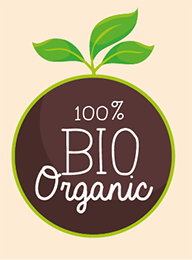The Role of Compost in Soil Biology
Healthy soil is composed of organic matter from dead and living organisms, minerals, microbes, beneficial worms, water, and air. These components exist in specific proportions, influencing the soil’s physical, chemical, and biological properties. Mineral matter makes up the largest portion of soil components; soil is 45% mineral matter. The mineral matter in soil is derived from the weathering and breakdown of rocks. It includes sand, silt, and clay particles, with varying sizes and properties that affect soil texture.
One of the primary benefits of compost is its ability to improve soil structure. As compost breaks down, it enhances soil aeration and drainage. Well-structured soil fosters healthy root development that is essential for robust plant growth. With good soil structure, your garden becomes a thriving habitat for beneficial microorganisms, earthworms, and other soil-dwelling creatures that support a healthy garden ecosystem.
Composting increases the humus or humic acid content of the soil, and possibly fulvic acid in some cases. Soil retention and structure are enhanced by good, well-shredded compost. that is rich in nutrients. Well-made compost helps mitigate soil erosion. Fine compost provides a healthy base for great soil and healthier plants. The same can be true of applying Kelp, blue-green algae, and Azomite®. All increase mineral uptake.
Green manure, made from cover crops and food waste, provides on-the-spot nutrients for soil. Green manure can be tilled into the soil or used as mulch. The cover crop root mass acts as a nutrient sink for other soil additives.
Fungi are a natural and beneficial part of the compost decomposition process. In compost, fungi are important because they break down tough debris, enabling bacteria to continue the decomposition process once most of the cellulose has been exhausted. They spread and grow vigorously by producing many cells and filaments, and they can attack organic residues that are too dry, acidic, or low in nitrogen for bacterial decomposition. Adjust and turn the compost pile as needed. One can always change ratios if necessary. Subsoils thrive when compost is added; good compost gives plants “microbiome” material that they can utilize. This compost, applied to plants, is a base for the plant to thrive.
Nutrient availability is another important reason for using compost in your garden. Compost is packed with essential nutrients, including nitrogen, phosphorus, and potassium. Compost allows the slow release of these nutrients that can sustain your plants throughout their growing cycles. Using compost also reduces the need for synthetic fertilizers. Using compost in your garden leads to healthier plants and more sustainable gardening practices. Compost can help suppress plant diseases and pests. It promotes a diverse community of beneficial microorganisms that can outcompete harmful pathogens and strengthen plant defenses.
Well-made compost usually contains nitrogen, phosphorus, potassium, and a full mineral spectrum. Compost can also include vegetables, wood chips, animal manure, branches, leaves, other woody and fibrous material, and several soil amendments. Alfalfa meal and straw can also be composted together for good results. Hay Mulch can be used in compost for additional nutrients. Animal manure from ducks, rabbits, sheep, goats, cows, or pigs can also be used. Soil and compost are enriched by animal manure. Each furnishes its particular nutrients. Animal manure constantly breaks down and releases its nutrients.

Biochar carbon (see our Links page for additional information on Biochar) is an excellent supplement for compost. Biochar is made through a process known as pyrolysis in which pieces of wood, usually hardwoods, are burned in a chamber without the presence of oxygen. These resulting biochar pieces are ideal to use in compost. Biochar forms a home for microbes for many years; it breaks down very slowly.
Compost tea is made by steeping compost in water, often with added nutrients and aeration to encourage microbial growth. It is one way to harness the beneficial microbes and nutrients from compost and deliver them to plants. Mulching is also as important as making compost tea. Blue-Green Algae is excellent to use in compost tea. For vegetable plants, materials supporting bacteria should dominate. Chenopodioideae (Amaranth) & vegetables in the Brassica family (cabbage, cauliflower, etc.) use bacteria rather than mycorrhizal fungi.
Reference: Chicken Helpers in the Garden: A Homeowner’s Guide to Sustainable Backyard Practices, p. 53, Robert Aston, self-published, May 2025
